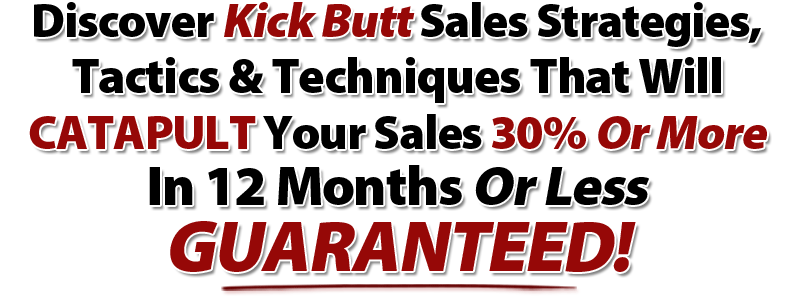
Do You Have The Sophisticated Sales Techniques and Skills To Avoid Unpaid Consulting?
Buyers are not honest. In fact, they mislead, tell half-truths and sometimes downright lie. Now that we got that on the table let’s delve into sales techniques that will help you avoid wasting tons of time and getting your brains beat out.
When a buyer and seller come together face to face or on the phone the buyer is looking for something. They have an agenda of why they want to meet or talk with the sales person. The sales person also has an agenda. Those two agendas are not in agreement with each other.
When a buyer engages in conversation with a sales person, the buyer is looking for information. They’re looking for what you do, how you do it, how long you’ve been doing it, how much it is, and so forth and so on. Bottom line is they want to gather information and arm themselves with proposals and quotes so they can spread them all out on a table, and then make the most intelligent decision about who to do business with.
Not only is that not in the best interest of the seller, it’s also not in the best interest of the buyer because the buyer generally doesn’t understand what we’re selling.
This process results in the buyer often times making a decision based on something that they really don’t understand. In any event, the buyer’s objective, the buyer’s agenda, is to gather as much information from the sales person as possible. And they expect that the sales person is going to give them all of that information absolutely free.
Sales Techniques That Don’t Work
When you engage in that process, you are doing what is called “unpaid consulting” and it happens because you are using old worn out sales techniques that no longer work in today’s new economy.
When you tell someone how to fix the problem that they currently have, and you share with them how to do it and go about giving them all this information, pricing and so forth and so on, and you provide all that education to the buyer, and you do so for free, that is “unpaid consulting”.
Buyers, because of the way that they’ve interacted with sales people in the past, expect that that is what you’re supposed to do. They see that as your obligation.
The other side of the buyer’s agenda is they want to extract maximum information from the seller, but they do not want to tell the seller anything or share any information. For instance, the buyer does not want to tell the salesperson who else they’re dealing with. The buyer does not want to tell the salesperson what other proposals or quotes they’ve gotten. Often times the buyer will mislead or downright lie to a salesperson about what their intention is or when they plan on doing something.
Buyers Playing Close To Their Vest
So, the buyer plays their cards very close to their vest. One of the reasons they do that is buyers have experienced in the past that any information you tell a salesperson can and will be used against you as a buyer. So, buyers do not want to tell salespeople anything at all. They want to extract information, but not give information.
So, the buyer doesn’t want to tell you how much is in their budget. The buyer doesn’t want to tell you how they make a decision. The buyer doesn’t want to tell you any of that stuff for fear it will be used against them. So, this is a game that is being played between buyer and seller. It is an emotional, mental chess match that is going on. The reason salespeople get think over’s is because the buyers are just better salespeople. If you are to avoid this drama, you need to develop newer and better sales techniques.
Remember, in every encounter someone is buying and someone is selling. Make sure you stay on the right side of that equation.

